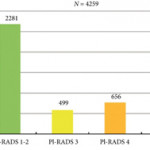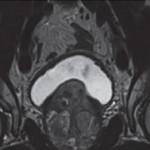Residents’ podcast: Artificial intelligence applications in urology
Maria Uloko is a Urology Resident at the University of Minnesota Hospital. In this podcast she is joined by Dr Christopher Weight, an Associate Professor in the Department of Urology at the University of Minnesota. They are discussing a recent BJUI Article of the month:
Current status of artificial intelligence applications in urology and their potential to influence clinical practice
Abstract
Objective
To investigate the applications of artificial intelligence (AI) in diagnosis, treatment and outcome prediction in urologic diseases and evaluate its advantages over traditional models and methods.
Materials and methods
A literature search was performed after PROSPERO registration (CRD42018103701) and in compliance with Preferred Reported Items for Systematic Reviews and Meta‐Analyses (PRISMA) methods. Articles between 1994 and 2018 using the search terms “urology”, “artificial intelligence”, “machine learning” were included and categorized by the application of AI in urology. Review articles, editorial comments, articles with no full‐text access, and nonurologic studies were excluded.
Results
Initial search yielded 231 articles, but after excluding duplicates and following full‐text review and examination of article references, only 111 articles were included in the final analysis. AI applications in urology include: utilizing radiomic imaging or ultrasonic echo data to improve or automate cancer detection or outcome prediction, utilizing digitized tissue specimen images to automate detection of cancer on pathology slides, and combining patient clinical data, biomarkers, or gene expression to assist disease diagnosis or outcome prediction. Some studies employed AI to plan brachytherapy and radiation treatments while others used video-based or robotic automated performance metrics to objectively evaluate surgical skill. Compared to conventional statistical analysis, 71.8% of studies concluded that AI is superior in diagnosis and outcome prediction.
Conclusion
AI has been widely adopted in urology. Compared to conventional statistics AI approaches are more accurate in prediction and more explorative for analyzing large data cohorts. With an increasing library of patient data accessible to clinicians, AI may help facilitate evidence‐based and individualized patient care.
BJUI Podcasts now available on iTunes, subscribe here https://itunes.apple.com/gb/podcast/bju-international/id1309570262
Dr Weight specializes in the surgical treatment of urologic cancers including prostate, bladder, kidney, adrenal, testis and penile cancer. He performs open, endoscopic, laparoscopic, robotic (da Vinci) and retroperineoscopic surgery.
Dr Weight completed his residency training at Cleveland Clinic where he received several awards including the George and Grace Crile Traveling Fellowship Award, the Society of Laparoendoscopic Surgeons Resident Achievement Award and the ASCO Genitourinary Cancer Symposium Merit Award. Dr. Weight then completed a fellowship in Urologic Oncology at Mayo Clinic, where he also completed a Masters degree in Clinical and Translational Research from Mayo Graduate School and was awarded the Mayo Fellows Association Humanitarian Award.
Dr Weight believes that medical research is a key component to offering excellent patient care. His research is focused on improving patient outcomes and the use of artificial intelligence in different urologic applications. He is an author of more than 45 peer-reviewed publications and book chapters and has been invited to speak at regional, national and international conferences.



